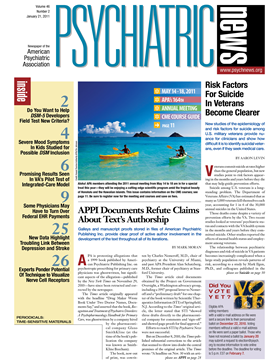A retrospective analysis of data on 275 individuals who had attempted to communicate with the British royal family in abnormal or inappropriate ways—for example, by sending letters or e-mails containing unrealistic, bizarre, sexual, or threatening content—has produced several salient findings.
Such individuals tended to be seriously mentally ill and to display the personality trait of grandiosity, researchers found.
When such individuals actually attempted to approach the royal family, they tended to score even higher on serious mental illness and grandiosity measures than did those who only attempted to communicate with the royal family in abnormal or inappropriate ways.
And it is grandiosity that turned out to best predict whether people who attempted to communicate with the royal family in abnormal or inappropriate ways actually tried to approach its members.
The cases for the study were drawn from a pool of more than 5,000 files compiled by the Royalty Protection Division of the London Metropolitan Police Service from 1988 to 2003. The files for these cases contained detailed information about subjects' mental and behavioral states and their motivations. Subjects were considered to be seriously mentally ill, that is, psychotic, if they experienced delusions, had a thought disorder, heard voices, or experienced other abnormal perceptions.
“I was surprised that so many of the cases were psychotic—and indeed severely so,” David James, M.D., a forensic psychiatrist with the North London Forensic Service and lead investigator of the study, told Psychiatric News
In contrast, J. Reid Meloy, Ph.D., a clinical professor of psychiatry at the University of California, San Diego and the American investigator on the study team, was surprised by “the degree to which grandiosity as a single factor was so predictive of ... approach among those who communicated” with the royals.
These results, which appeared in the fall 2010 Journal of the American Academy of Psychiatry and the Law, have practical implications, James, Meloy, and their colleagues wrote. “It is evident from the results that there are significant differences between those who simply communicate and those who communicate and approach, and that these differences may be of use in predicting which groups of communicators are at increased risk of escalating their behavior to inappropriate approach. This analysis has potential importance in threat assessment, because preventing inappropriate approach equates with reducing the levels of threat to royal family members.”
Indeed, these results, as well as others they obtained on the stalking of the royals, have “actually translated into increased personal safety for the British royal family,” Meloy told Psychiatric News, explaining that the research team made its results available to the United Kingdom Home Office, which funded their research.
James, Meloy, and their colleagues also helped found the Fixated Threat Assessment Center, located across the street from Buckingham Palace, in 2006. The center is a combination London Metropolitan Police Service and mental health service facility. Some 1,000 individuals are referred to the center yearly because they have engaged in threatening or harassing communications with the royal family or British politicians.
The center's staff evaluates these individuals, and if they find them to be mentally ill, they alert the individuals' general practitioners and psychiatrists, who then provide the individuals with appropriate treatment. If the individuals pose an immediate threat to others or themselves, they are admitted to a hospital for treatment. “As a result, our work is also translating ... into better mental health care for mentally ill people who have fallen through the cracks,” Meloy observed.
James concurred: “Isolated loners, many with mental illnesses, are the greatest danger to the royal family members and politicians. Evaluation and treatment for them through the Fixated Threat Assessment Center both improves their lot and protects public figures.”
“I thought that this study was a delightful replication in another context of work I had done decades earlier,” Park Dietz, M.D., Ph.D., a Newport Beach, Calif., forensic psychiatrist and stalking expert, told Psychiatric News. Dietz was referring to research in which he and a colleague analyzed people's abnormal communications with, and abnormal approaches to, Hollywood celebrities. They found, for example, that individuals who approached celebrities were significantly more likely to display grandiosity than those who attempted to communicate with celebrities in ways other than through directly approaching them.
